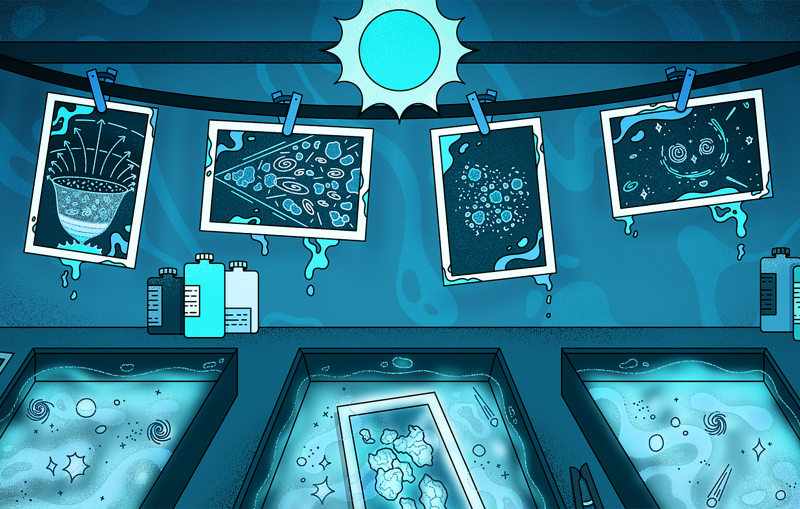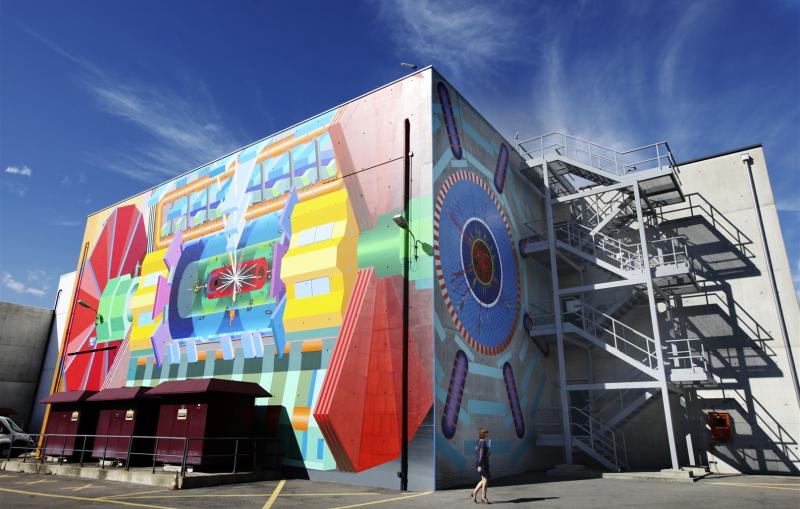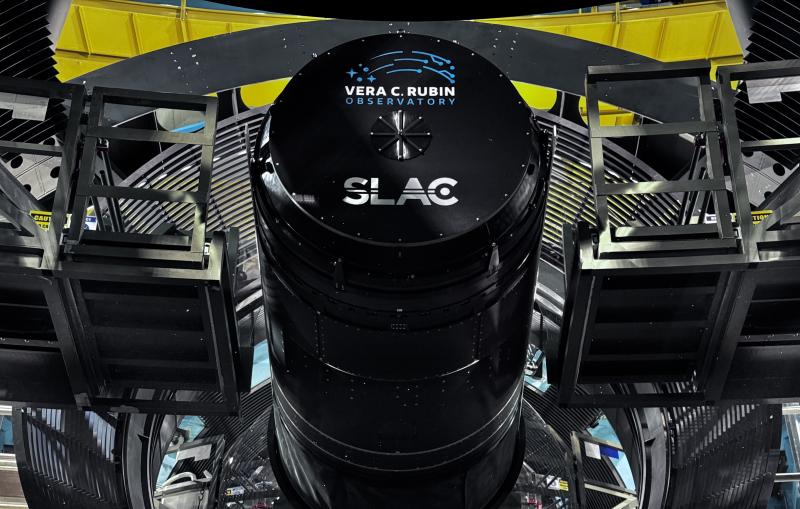First SuperCDMS detector towers journey from SLAC to SNOLAB
The first pair of towers are now at the Ontario facility, where they'll further the hunt for dark matter particles.
After years of pioneering work, researchers at the Department of Energy’s SLAC National Accelerator Laboratory have completed the detector towers that will soon sit at the heart of the SuperCDMS SNOLAB dark matter detection experiment.
The team finished building the towers this past September, and SLAC, which leads the SuperCDMS project, sent the first two towers to SNOLAB in Ontario, Canada earlier this month.
SuperCDMS SNOLAB will look for relatively light dark matter particles, between about half the mass of the proton to roughly 10 proton masses, and in that range it will be the world's most sensitive direct-detection experiment, said Richard Partridge, a senior staff scientist at SLAC and a long-time SuperCDMS researcher. That accomplishment comes down to two things: improvements in the detector design and the location of the experiment itself, Partridge said.
"It's been a lot of fun," Partridge said. "We've learned a lot of new things, and we've built some really interesting technology," including flexible superconducting cables, electronics systems that function in extreme cold, and improved cryogenics systems – along with advances in shielding the detectors – that have made the detectors and surrounding systems better able to sense passing dark matter than ever before.
The experiment will also benefit from its new location a mile and a quarter underground at SNOLAB, where the background of cosmic rays will interfere less with efforts to find a dark matter signal.
"SNOLAB and SuperCDMS are made for each other," said SNOLAB Executive Director Jodi Cooley. "We are extremely excited about the potential for SuperCDMS to detect dark matter directly and advance our insight into the nature of the universe."

Vitaly Yakimenko, SLAC's deputy director for projects and infrastructure and SuperCDMS project director, said researchers look forward to bringing the experiment online. "It's been 10 years of technological development to build these state-of-the-art detectors," he said. The team hopes the experiment will capture signs of illusive dark matter particles, but regardless of the outcome, it will establish a path forward for even more sensitive experiments, Yakimenko said. "It's a major accomplishment."
JoAnne Hewett, head of SLAC’s Fundamental Physics Directorate and the lab’s chief research officer, said she was pleased by the experiment's progress. "Understanding dark matter is one of the most important areas of research, both around the world and here at SLAC," Hewett said. "We're excited to reach this milestone and to work with our partners to build this cutting-edge experiment."
Searching deep underground
Scientists know that all the visible matter in the universe – all the dust and planets and stars that we can already detect through telescopes – makes up only about 15 percent of what's actually out there. The rest is dark matter, but no one knows exactly what that is. Physicists can tell it's there through its gravitational pull on ordinary matter, but it is otherwise very hard to detect.
That's where experiments like SuperCDMS SNOLAB come in. The project is the latest iteration of a series of experiments that use silicon and germanium crystals to try to find dark matter particles. These crystals are cooled to a fraction of a degree above absolute zero – hence the experiments' name: Cryogenic Dark Matter Search, or CDMS. The hope is that at such low temperatures, researchers could detect passing dark matter particles by the tiny vibrations they create when colliding with the crystals.
Those collisions would also produce pairs of electrons and electron deficiencies, or holes, that move through the crystals, triggering more vibrations and amplifying the dark matter signal. Sophisticated superconducting electronics help detect these signals.
To make that job possible, the experiment will be built and operated at SNOLAB, 6,800 feet underground inside a nickel mine near Sudbury, Ontario. There, the SLAC-built detectors will be shielded from high-energy particles, called cosmic radiation, which can create unwanted background signals.
A long journey
Once the detectors were done, the next step for the SLAC team was getting them to SNOLAB – and here there were tradeoffs. To protect them from cosmic rays, the team wanted to get them to their new underground home as quickly as possible, which might suggest a direct route over the Rocky Mountains or even a flight to Ontario. However, the thinner atmosphere at higher altitudes affords less protection from cosmic rays.
"In principle, we want to keep things as low as possible, but there's also a cost to the total number of days you're on the surface," said Tarek Saab, a University of Florida physicist and SuperCDMS spokesperson. "So, we want a route that gives you the least overall exposure to cosmic rays."
In the end, the team decided to take a route east to Texas and then north to SNOLAB.
Meanwhile, SNOLAB has been busy getting the SuperCDMS facility ready for the detectors, the first two of which arrived on May 12 and made the trip 6,800 feet underground the following day. The remaining towers will arrive later this year, and initial preparations for the experiment are expected to be complete sometime in 2024, at which point the experimental team can begin taking initial data and working out any kinks that remain in the system. Researchers expect to run the experiment for three to four years before they have enough data to push the limits of what we know about dark matter.
But for now, everyone is looking forward to delivering the detectors, Saab said. "It will be a significant milestone to have the detectors at SNOLAB."
For questions or comments, contact the SLAC Office of Communications at communications@slac.stanford.edu.
About SLAC
SLAC National Accelerator Laboratory explores how the universe works at the biggest, smallest and fastest scales and invents powerful tools used by researchers around the globe. As world leaders in ultrafast science and bold explorers of the physics of the universe, we forge new ground in understanding our origins and building a healthier and more sustainable future. Our discovery and innovation help develop new materials and chemical processes and open unprecedented views of the cosmos and life’s most delicate machinery. Building on more than 60 years of visionary research, we help shape the future by advancing areas such as quantum technology, scientific computing and the development of next-generation accelerators.
SLAC is operated by Stanford University for the U.S. Department of Energy’s Office of Science. The Office of Science is the single largest supporter of basic research in the physical sciences in the United States and is working to address some of the most pressing challenges of our time.






